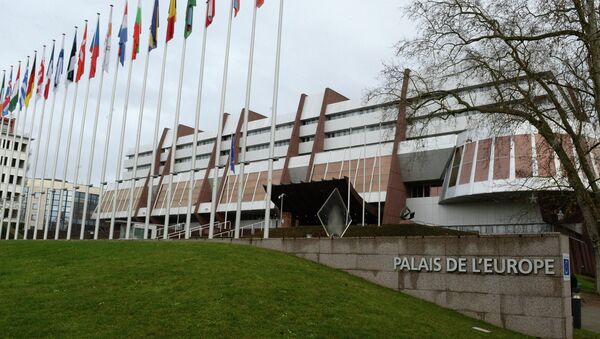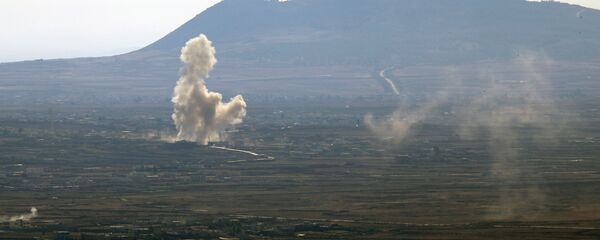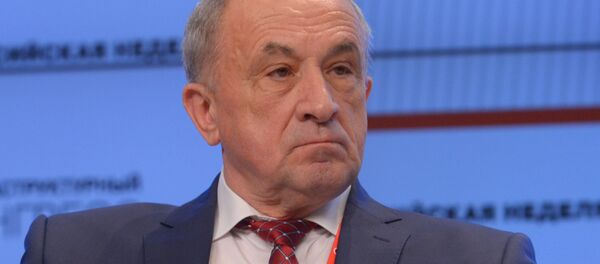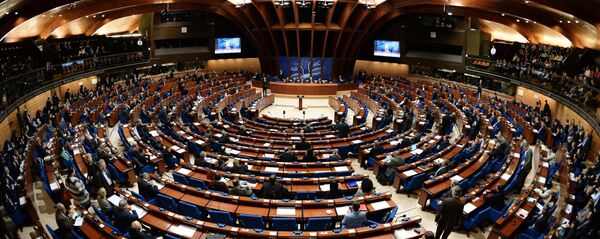STRASBOURG (Sputnik) – The elimination of the consequences suffered by Europe as a result of its migration crisis is also set to be considered at the upcoming PACE session.
SITUATION AROUND AGRAMUNT VISIT TO SYRIA
On March 20, Agramunt, along with Russian and PACE lawmakers, arrived on a private visit to Syria, without the intention to represent the assembly. On April 24, Agramunt apologized for the trip prompting PACE lawmakers’ proposal to hold a no-confidence vote.
On April 28, the PACE Bureau declared Agramunt deprived from the right to make statements or participate in foreign trips on behalf of the assembly. The Bureau ordered Liliane Maury Pasquier to prepare a draft document amending PACE regulations to introduce dismissal procedures of PACE members in elective office. The document will be considered on Tuesday.
Agramunt has not made a public commentary on the situation to date.
CORRUPTION
On April 25, PACE established a group to investigate corruption charges against PACE members after in late March Jan Egeland, the humanitarian adviser to UN special envoy for Syria, called on PACE to launch an independent inquiry into corruption allegations against some PACE lawmakers as soon as possible.
PACE RELATIONS WITH RUSSIA
Commenting on the situation around Agramunt, Russian Deputy Foreign Minister Aleksey Meshkov said in April that the PACE president gained valuable experience from visiting Syria regardless of the fact that it provoked criticism from some PACE lawmakers and those PACE members who visited Syria could see the real situation on the ground, which is different than how it is portrayed by some media.
Russia did not renew its credentials ahead of the Assembly’s 2016 and 2017 winter sessions and made its return conditional on the full restoration of its delegates' voting rights. In early June, speaker of the Russian lower chamber of parliament Vyacheslav Volodin said that Russia has "blocked" the transfer of one-third of Russia’s dues to the Council of Europe, which amount to 11 million euros ($12.39 million). Ilyas Umakhanov, the deputy speaker of the Russian parliament's upper chamber, described the move as "fair reaction" to the presence of Russophobia within the organization although media reports suggested that Russia would cut down its dues to the council's budget because of the Russian delegation's absence.




